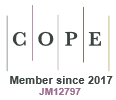Just Accepted
This article has been peer reviewed and accepted for publication. It is in production and has not been edited, so may differ from the final published form.
Factors enabling fire management outcomes in Indigenous Savanna Fire Management projects in Western Australia.
Abstract
Background Balanggarra, Dambimangari, Wilinggin and Wunambal Gaambera Traditional Owners in Western Australia's Kimberley region operate Savanna Fire Management projects under the North Kimberley Fire Abatement Project. Aims We examine changes to the fire regime before and after the initiation of these projects and discuss implications for incentivising fire management. Methods Using established methods and high-resolution imagery, we compared fire metrics between baseline (2001-2011) and project years (2012-2022). Key results Fire seasonality notably shifted from late to early dry season dominance, with fewer late season fires across 68% (2,556,632 ha) of the project, resulting in carbon abatement. While total area burnt remained similar, annual fire pattern transitioned from a cyclical to less variable regime. Fire patchiness, fire age diversity, and area of long unburnt vegetation increased while fire frequency decreased. A minimum of four years of fire management was required before significant changes in fire metrics were observed. Conclusions The fire regime has improved significantly, enabled by the emergence of land management programs, carbon markets, the support of partner agencies, and the securing of native title rights. Implications Beyond carbon credits, access to technology holds promise for sustained improvements to adaptive fire management built on strong foundations of traditional burning practices.
WF24092 Accepted 25 July 2024
© CSIRO 2024


